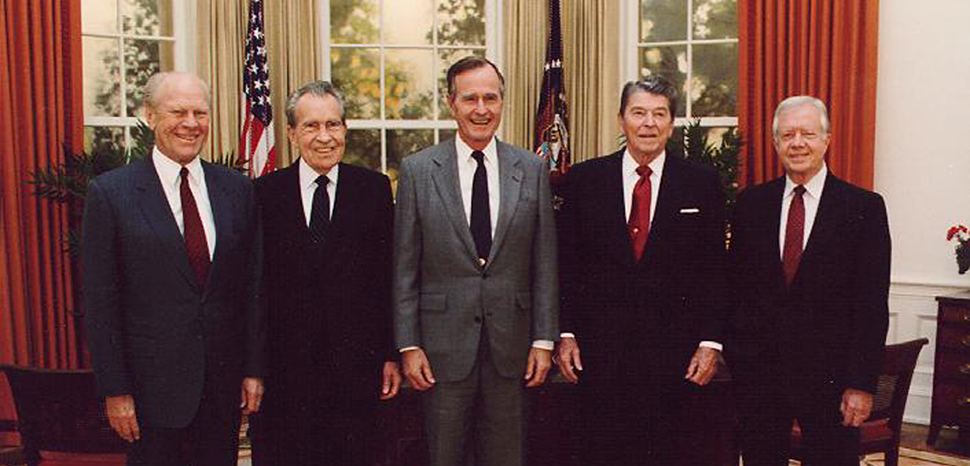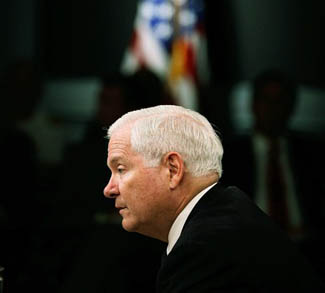The principal responsibility of the executive, particularly in the United States, is the conduction of foreign policy. This specific obligation is reflected in the immense power that is typically granted to achieve this. Throughout the democratic world, legislatures exercise varying degrees of control and oversight, but it is generally understood that an effective international agenda must operate through a singular vision. However, this distinct incumbency is not without provision. In democratic theory, the bulwark against an unpopular, failing, or chaotic foreign policy is the ballot box. The implied social contract is that an educated voting populace holds the executive accountable through electoral contests. This is a responsibility that political opponents and detractors are expectedly eager to fulfill, but is that same vigor shared by the executive’s supporters? Do the executive’s political partisans really care about foreign policy?
The revelation that Russian intelligence services had actively interfered in the 2016 US presidential election proved shocking to most Americans. Code-named Project Lakhta, the program resulted in over 200 reported contacts with the Trump presidential campaign. The event marked a new low for the already tense relationship between Washington and Moscow and proved the catalyst for significant strife that the Trump administration would face during its tenure. However, there was one noticeable faction of Americans who appeared unaffected by the news: President Trump’s own voters. According to a Reuters Poll released in 2018, over 70% of Republican voters still approved of President Trump’s relationship with Russia, despite widespread accusations of collusion. The implication, which is that executives can act with impunity without fear of losing their base democratic support, could have drastic consequences.
The broader impact of foreign policy on voters is traditionally a fraught subject. Some scholars have theorized this is because politicians from different parties face unique expectations from the public. Dr Shana Gadarian tackled this subject at Berkeley in 2010. Using electoral data as far back as 1980, Gadarian’s research showed that voters prioritized foreign policy much higher when considering a vote for the Republican candidate, and less importantly when considering the Democrat. In addition to the different standards by which candidates are judged, further research indicates that these standards can change depending on circumstances. Dr. Donna-Gene Mitchell in 2013 added to this assertion, finding that if controversial policies, or even outright scandals, are in abundance in regard to a certain candidate, its effect when an individual evaluates that candidate actually declines.
Much of the existing research on the topic has focused on military interventions. This is because in many democratic states, the management or initialization of conflict is largely at the discretion of the executive without legislative involvement, and therefore can be analyzed more clearly. One of the more commonly held beliefs is that executive’s benefit from a state of conflict, as the influx of wartime propaganda has the added effect of increasing support for the wartime leader. However, despite claims to the contrary, an aggressive foreign policy may actually have electoral consequences. Researchers at the University of California, Berkeley found that President Bush actually lost votes in the 2004 election because of Iraq War casualties. By tracing casualty records back to specific districts, they calculated that the 10,000 US soldiers who had died by election day cost Bush 2% of the vote.
If the impact of foreign policy decisions on persuadable voters is less clear, research has demonstrated a less complicated picture for existing partisans. In 2019, McDonald, Croco, and Turitto examined this question using survey data gathered through qualitative methods. They found that even when directly confronted with a “flip-flop” in policymaking by President Trump, an individual’s preexisting opinion of the president did not change. Those who had supported the president before this revelation remained supportive, and vice versa with those who did not align with him politically. In fact, they found that existing partisanship played the dominant role in evaluating Trump’s performance. It might be tempting to prescribe the unique affinity some voters share with former President Trump as the reason behind why they are willing to prioritize partisan agreement over all other metrics of success. However, there is a wealth of academic research that suggests otherwise. Dr. Sarah Croco of the University of Maryland, who had also participated in the previously cited research, specifically found that voters in general are ambiguous towards an executive being inconsistent with policymaking. In her research, even when presented with two ideologically opposed policies instituted by the same executive, respondents were still overwhelmingly likely to simply revert back to their original political preference in their assessment.
Independent voters or those of a differing political opinion than the executive in question are clearly subject to a variety of influences when evaluating an executive’s foreign policy. Wartime casualties and objective success certainly play a role when non-committed voters assess foreign policy, however, the literature indicates a shift in priorities when committed partisans evaluate foreign policy. Those who had previously supported the executive, or who were already largely in agreement with them as a candidate, tend to internalize their foreign policy as a mechanism of further entrenchment. If already opposed, exposure to the candidates’ foreign policy might intensify this status, or be negligible. In contrast, exposure to it as a supporter might increase goodwill or, again, have no impact. While clearly, the conduct of foreign policy has consequences in terms of the executive’s political capital, legislative influence, and popularity, its direct impact on the executive’s own supporters is alarmingly insignificant. In a democracy, accountability is everything. And it seems as if impassioned partisans are not holding true to their half of the bargain.
The views expressed in this article belong to the authors alone and do not necessarily reflect those of Geopoliticalmonitor.com.




